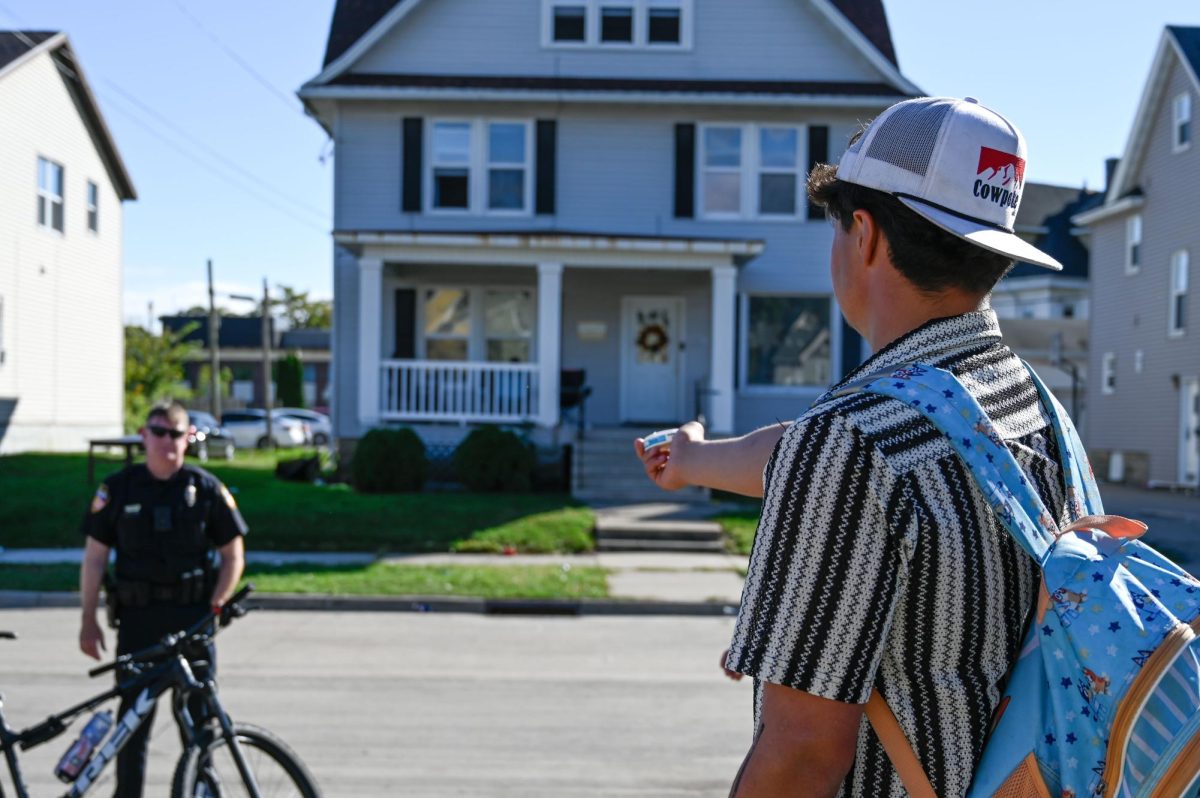Oshkosh Student Association President Austyn Boothe vetoed a resolution, passed by OSA Senate and Assembly, to reclassify some allocable seg fees to non-allocable fees, on Wednesday.
Boothe said she and Chair of Allocations Michael Riley met over the weekend and agreed the resolution would increase the amount of students that would opt out of paying allocable fees if given the option, ultimately determining her decision to veto the resolution.
“I am not in favor of this resolution primarily because students’ voices are not required to be listened to as they are now, if these services are moved over to non-allocable,” Boothe said.
The OSA Senate and Assembly passed the resolution to move some of the University of Wisconsin Oshkosh’s allocable segregated fees to being non-allocable on March 27 and 28, in response to Walker’s idea in his budget to make allocable seg fees optional.
Riley said allocable segregated fees can be used by students, while non-allocable segregated fees are bigger projects.
“Non-allocable seg fees are just for bigger projects, like the RecPlex would’ve been financed by non-allocable,” Riley said. “Then allocable is the money that is spent on students directly. If you have a club and want to go compete at something then you can utilize those funds.”
Boothe said she was conflicted on whether or not she wanted to sign the resolution because of two reservations she had, including funding getting cut from OSA services, since a lot of those services are being moved over.
“In the future, if student body presidents become extremely critical of the University or extremely critical of administrators or the chancellor themselves, they might fear their funding getting cut,” Boothe said. “So, student legal service has become a reference for OSA presidents…about what the University is doing; fears that that advice could be removed if it becomes used to be critical of the University.”
Riley said he thinks a divide would form on campus between students who saw the opportunities clubs bring and opted in to allocable fees and those students who came to college solely for academics.
“It would be difficult to have an inclusive campus if people who are not paying their fees would not be able to take advantage of all the things campus has to offer,” Riley said.
Jean Kwaterski, advisor of the Segregated Fees Committee, said the campus would change if the segregated fees that go toward groups went away and would depend on how it’s implemented.
“I’m hoping that the University has the ability to decide how it is implemented, and that the Governor or Legislature doesn’t tell us how to do it,” Kwaterski said. “I’m hoping that there can be a deadline date by which students will need to opt out, so we can determine how much money is available for the year.”
Boothe said she was worried about unstable funding if the services being moved to non-allocable were moved, which could lead to all of those services not being offered at all.
Junior Greta Hammond said she thinks the opt-out option being offered in Gov. Scott Walker’s budget is a good idea because she doesn’t think students should have to pay those fees, but wouldn’t opt out herself.
“I just think that those [groups] are important to the campus community,” Hammond said.
Student groups are necessary on campus in order to have a campus community that’s connected, Boothe said.
“[Student groups] can make students more successful throughout college,” Boothe said. “There is a fear that if there is less funding for that we are going to have less successful students. In college you learn just as much outside of the classroom as you do in the classroom.”
The 160 student organizations on campus are crucial to the college experience, Riley said.
“Personally, I still wouldn’t probably be here if it weren’t for organizations and clubs where I got to meet people with similar interests and goals and pursuits,” Riley said.
Boothe said if Walker’s budget does pass and allocable fees become optional and students do not pay them, then those students wouldn’t be able to use those services funded by allocable fees, which could cause an issue for the campus to figure out who is allowed to use the services.
“That’s a huge administrative issue on this campus,” Boothe said. “Does that mean IDs have to be scanned to go into a club meeting? Does that mean if you want to go to Bye Gosh Fest, which is an allocable fee, do they have to have a list of who can and can’t get in? So that’s probably going to be a financial burden on the University.”
Boothe said another fear she had with opting in or out of segregated fees has to deal with the Supreme Court case Board of Regents of the University Wisconsin System vs. Southworth. This case states that if there are mandatory fees at a University, they must remain viewpoint neutral.
The key words in Southworth are “mandatory fee.” If there is an opt out, it’s no longer mandatory, and people don’t have to be viewpoint neutral, Boothe said.
“A lot of students absolutely love Bye Gosh Fest so maybe if we have such little funding and everybody wants Bye Gosh Fest, we use all of our funding for Bye Gosh Fest and nobody else gets anything,” Boothe said. “Or [maybe] people with different ideologies may sway funding there.”
Kwaterski said the University would need to determine a way to exclude students who do not pay the fee from using the allocable fee funded services.
“If a student doesn’t pay the allocable fee, they shouldn’t be allowed to sign up for an intramurals team or be part of a segregated-fee-funded student organization,” Kwaterski said. “Overall, though, if students choose to opt out of the allocable portion of the fee, there will be less money available to fund OSA, intramurals, the Green Fund and student organizations.”








